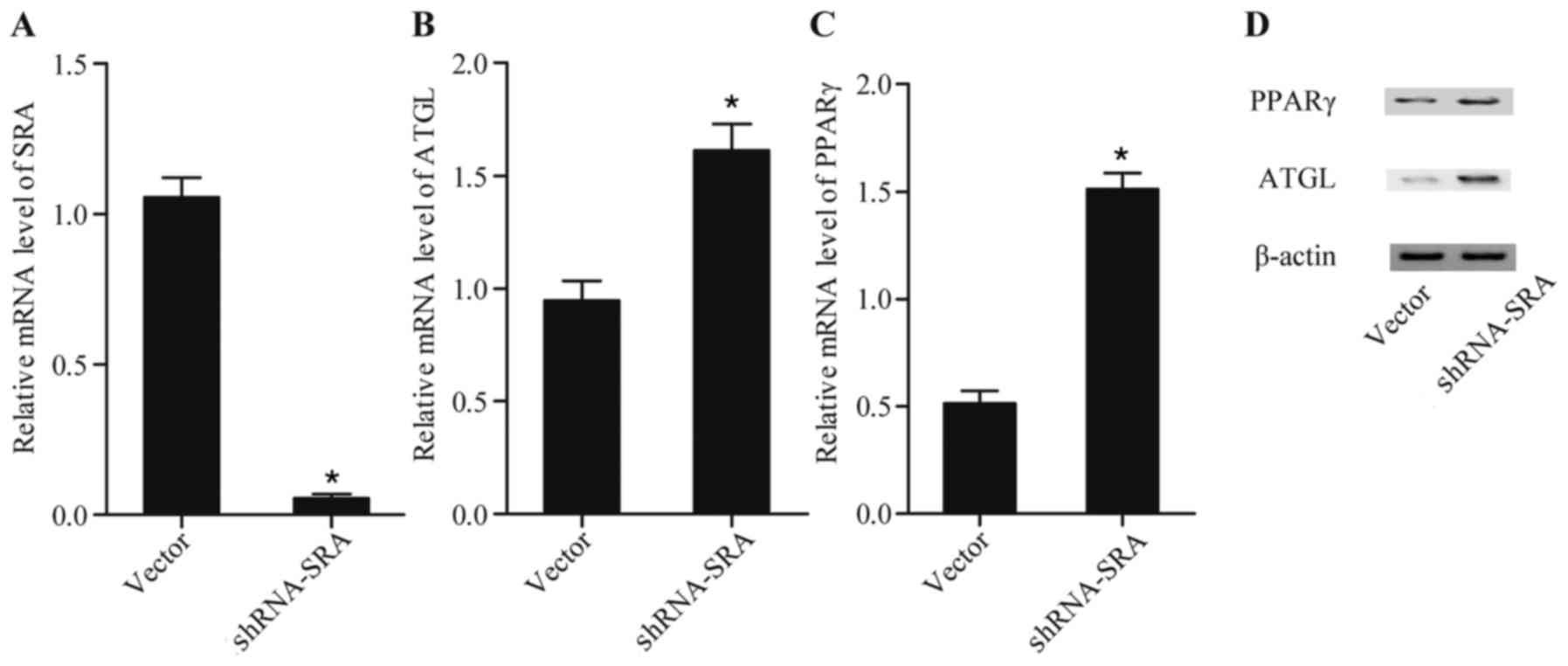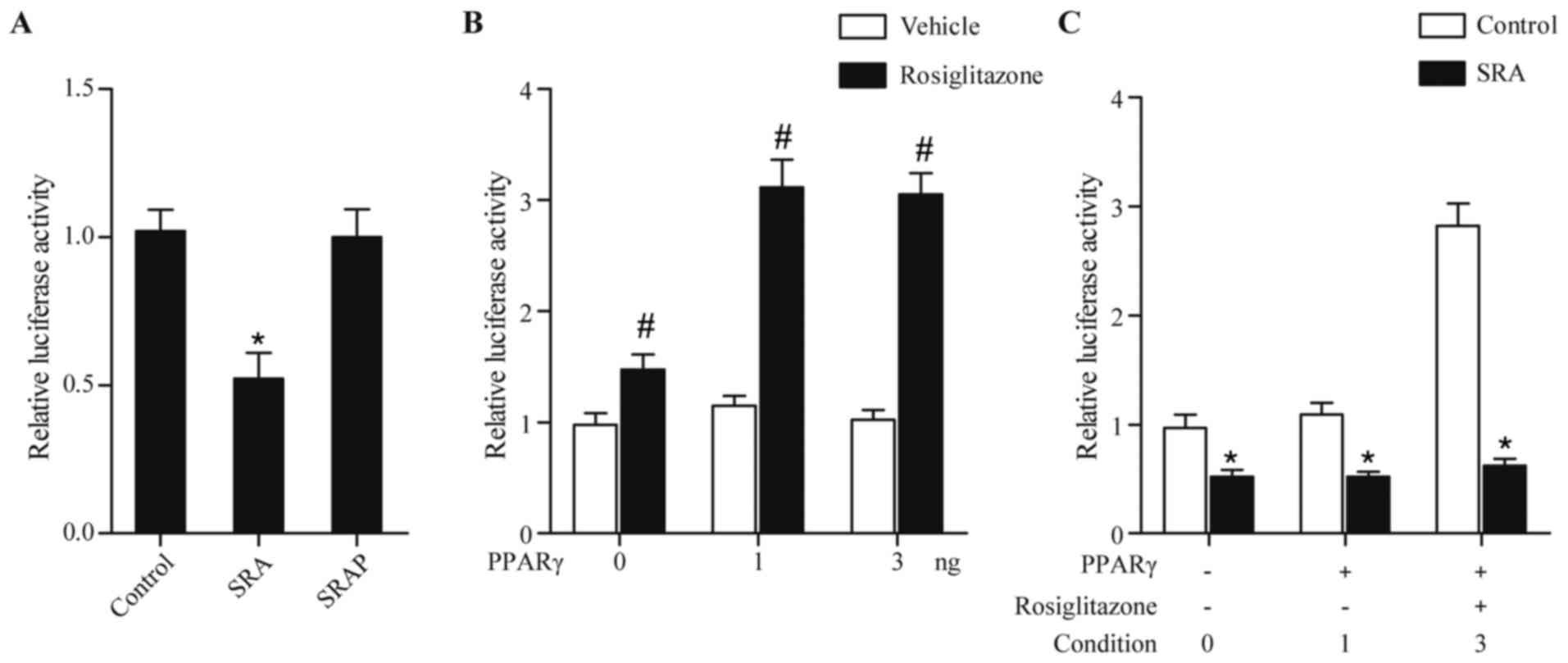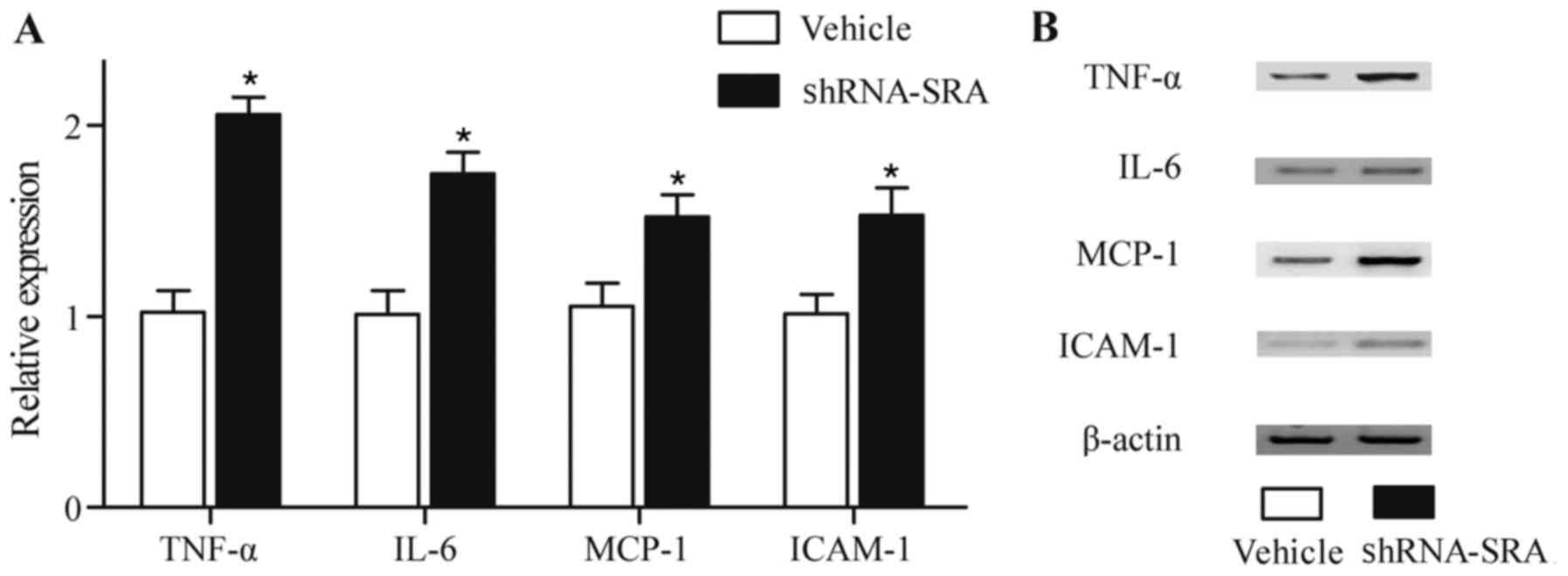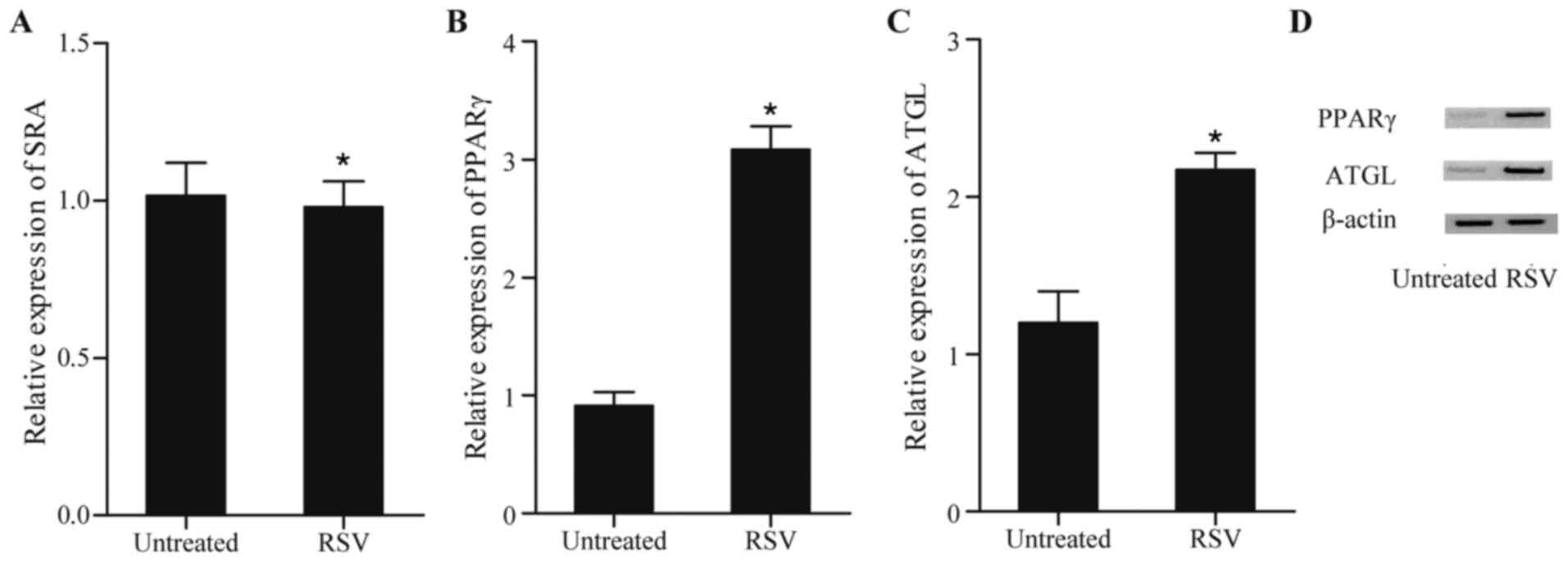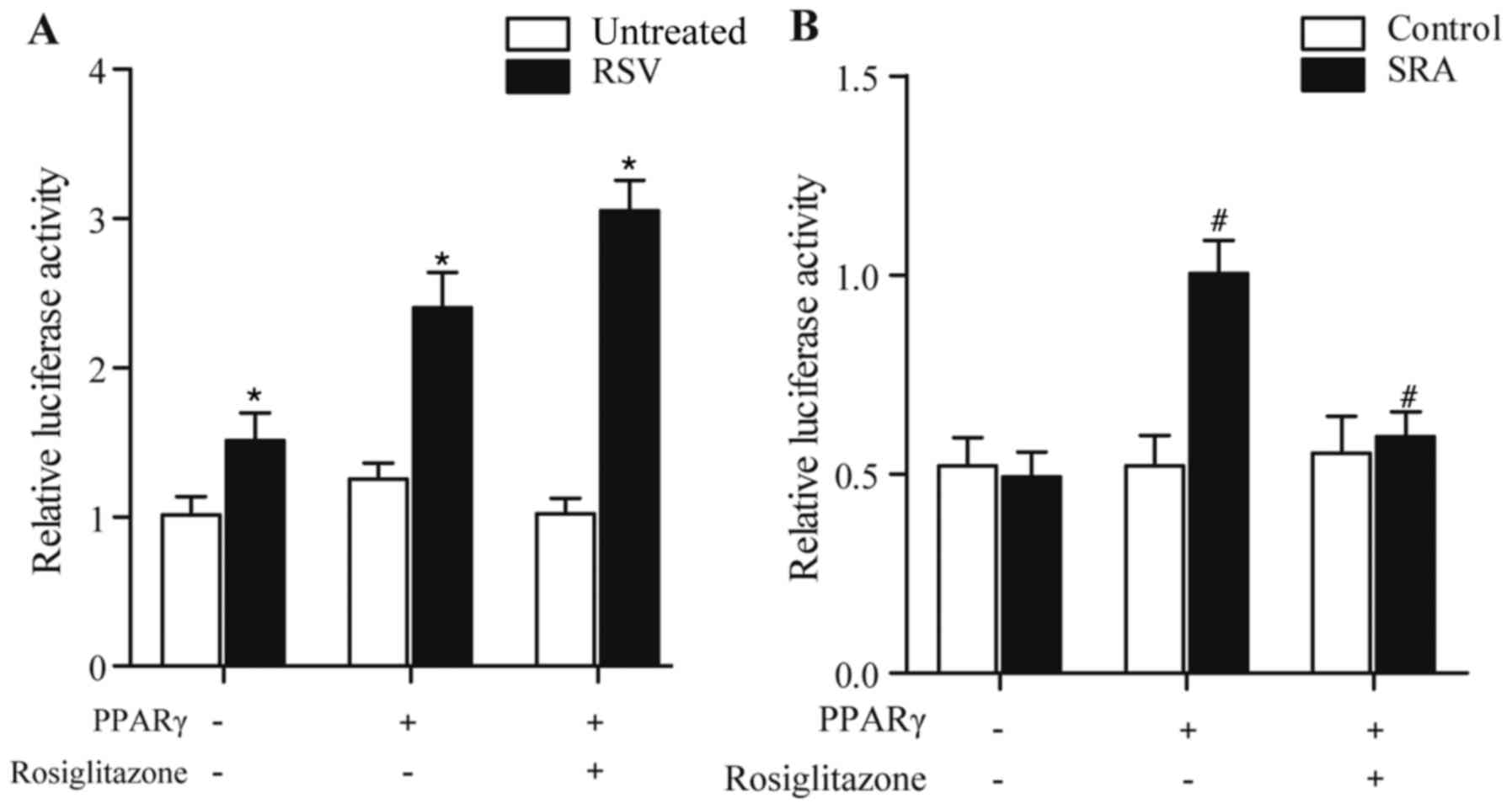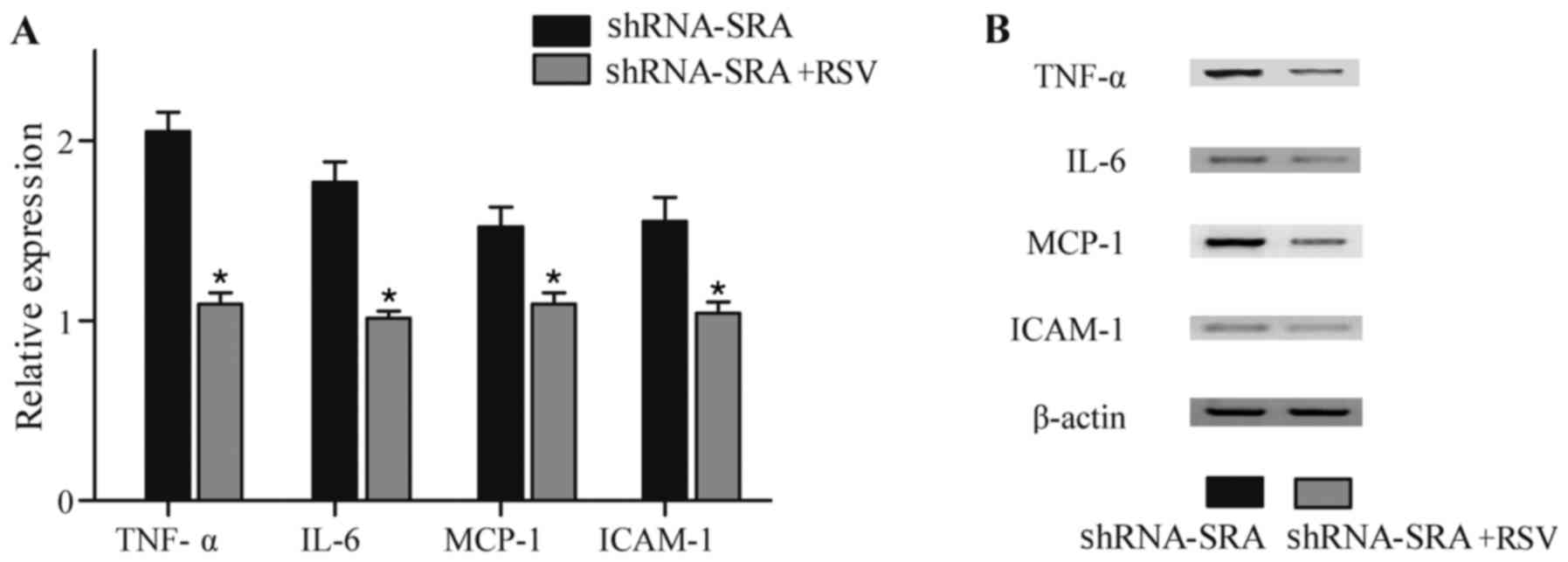|
1
|
Ross R: Atherosclerosis-an inflammatory
disease. N Engl J Med. 340:115–126. 1999. View Article : Google Scholar : PubMed/NCBI
|
|
2
|
Orchard TJ, Stevens LK, Forrest KY and
Fuller JH: Cardiovascular disease in insulin dependent diabetes
mellitus: Similar rates but different risk factors in the US
compared with Europe. Int J Epidemiol. 27:976–983. 1998. View Article : Google Scholar : PubMed/NCBI
|
|
3
|
Himmelmann A, Hansson L, Svensson A,
Harmsen P, Holmgren C and Svanborg A: Predictors of stroke in the
elderly. Acta Med Scand. 224:439–443. 1988. View Article : Google Scholar : PubMed/NCBI
|
|
4
|
Suwaidi JA, Hamasaki S, Higano ST,
Nishimura RA, Holmes DR Jr and Lerman A: Long-term follow-up of
patients with mild coronary artery disease and endothelial
dysfunction. Circulation. 101:948–954. 2000. View Article : Google Scholar : PubMed/NCBI
|
|
5
|
Butany JW, Verma S, Leask RL, Mohsen B and
Asa SL: Genetic abnormalities of the endothelium. Microsc Res Tech.
60:30–37. 2003. View Article : Google Scholar : PubMed/NCBI
|
|
6
|
Esper RJ, Nordaby RA, Vilariño JO,
Paragano A, Cacharrón JL and Machado RA: Endothelial dysfunction: A
comprehensive appraisal. Cardiovasc Diabetol. 5:42006. View Article : Google Scholar : PubMed/NCBI
|
|
7
|
Kolka CM and Bergman RN: The endothelium
in diabetes: Its role in insulin access and diabetic complications.
Rev Endocr Metab Disord. 14:13–19. 2013. View Article : Google Scholar : PubMed/NCBI
|
|
8
|
Schrammel A, Mussbacher M, Wölkart G,
Stessel H, Pail K, Winkler S, Schweiger M, Haemmerle G, Al Zoughbi
W, Höfler G, et al: Endothelial dysfunction in adipose triglyceride
lipase deficiency. Biochim Biophys Acta. 1841:906–917. 2014.
View Article : Google Scholar : PubMed/NCBI
|
|
9
|
Derrien T, Johnson R, Bussotti G, Tanzer
A, Djebali S, Tilgner H, Guernec G, Martin D, Merkel A, Knowles DG,
et al: The GENCODE v7 catalog of human long noncoding RNAs:
Analysis of their gene structure, evolution, and expression. Genome
Res. 22:1775–1789. 2012. View Article : Google Scholar : PubMed/NCBI
|
|
10
|
Harrow J, Frankish A, Gonzalez JM,
Tapanari E, Diekhans M, Kokocinski F, Aken BL, Barrell D, Zadissa
A, Searle S, et al: GENCODE: The reference human genome annotation
for The ENCODE Project. Genome Res. 22:1760–1774. 2012. View Article : Google Scholar : PubMed/NCBI
|
|
11
|
Young RS, Marques AC, Tibbit C, Haerty W,
Bassett AR, Liu JL and Ponting CP: Identification and properties of
1,119 candidate lincRNA loci in the Drosophila melanogaster genome.
Genome Biol Evol. 4:427–442. 2012. View Article : Google Scholar : PubMed/NCBI
|
|
12
|
Holdt LM, Beutner F, Scholz M, Gielen S,
Gäbel G, Bergert H, Schuler G, Thiery J and Teupser D: ANRIL
expression is associated with atherosclerosis risk at chromosome
9p21. Arterioscler Thromb Vasc Biol. 30:620–627. 2010. View Article : Google Scholar : PubMed/NCBI
|
|
13
|
Han DK, Khaing ZZ, Pollock RA,
Haudenschild CC and Liau G: H19, a marker of developmental
transition, is reexpressed in human atherosclerotic plaques and is
regulated by the insulin family of growth factors in cultured
rabbit smooth muscle cells. J Clin Invest. 97:1276–1285. 1996.
View Article : Google Scholar : PubMed/NCBI
|
|
14
|
Hu YW, Yang JY, Ma X, Chen ZP, Hu YR, Zhao
JY, Li SF, Qiu YR, Lu JB, Wang YC, et al: A
lincRNA-DYNLRB2-2/GPR119/GLP-1R/ABCA1-dependent signal transduction
pathway is essential for the regulation of cholesterol homeostasis.
J Lipid Res. 55:681–697. 2014. View Article : Google Scholar : PubMed/NCBI
|
|
15
|
Chen G, Yu D, Nian X, Liu J, Koenig RJ, Xu
B and Sheng L: LncRNA SRA promotes hepatic steatosis through
repressing the expression of adipose triglyceride lipase (ATGL).
Sci Rep. 6:355312016. View Article : Google Scholar : PubMed/NCBI
|
|
16
|
Barbato Lettieri D, Tatulli G, Aquilano K
and Ciriolo MR: Inhibition of age-related cytokines production by
ATGL: A mechanism linked to the anti-inflammatory effect of
resveratrol. Mediators Inflamm. 2014:9176982014.PubMed/NCBI
|
|
17
|
Livak KJ and Schmittgen TD: Analysis of
relative gene expression data using real-time quantitative PCR and
the 2(-Delta Delta C(T)) method. Methods. 25:402–408. 2001.
View Article : Google Scholar : PubMed/NCBI
|
|
18
|
Feng Q, Su Z, Song S, Χu H, Zhang B, Yi L,
Tian M and Wang H: Histone deacetylase inhibitors suppress RSV
infection and alleviate virus-induced airway inflammation. Int J
Mol Med. 38:812–822. 2016. View Article : Google Scholar : PubMed/NCBI
|
|
19
|
Friedrichs F, Zugck C, Rauch GJ, Ivandic
B, Weichenhan D, Müller-Bardorff M, Meder B, El Mokhtari NE,
Regitz-Zagrosek V, Hetzer R, et al: HBEGF, SRA1, and IK: Three
cosegregating genes as determinants of cardiomyopathy. Genome Res.
19:395–403. 2009. View Article : Google Scholar : PubMed/NCBI
|
|
20
|
Xu B, Gerin I, Miao H, Vu-Phan D, Johnson
CN, Xu R, Chen XW, Cawthorn WP, MacDougald OA and Koenig RJ:
Multiple roles for the non-coding RNA SRA in regulation of
adipogenesis and insulin sensitivity. PLoS One. 5:e141992010.
View Article : Google Scholar : PubMed/NCBI
|
|
21
|
Liu S, Sheng L, Miao H, Saunders TL,
MacDougald OA, Koenig RJ and Xu B: SRA gene knockout protects
against diet-induced obesity and improves glucose tolerance. J Biol
Chem. 289:13000–13009. 2014. View Article : Google Scholar : PubMed/NCBI
|
|
22
|
Creager MA, Lüscher TF, Cosentino F and
Beckman JA: Diabetes and vascular disease: Pathophysiology,
clinical consequences, and medical therapy: Part I. Circulation.
108:1527–1532. 2003. View Article : Google Scholar : PubMed/NCBI
|
|
23
|
Benjamin EJ, Larson MG, Keyes MJ, Mitchell
GF, Vasan RS, Keaney JF Jr, Lehman BT, Fan S, Osypiuk E and Vita
JA: Clinical correlates and heritability of flow-mediated dilation
in the community: The Framingham Heart Study. Circulation.
109:613–619. 2004. View Article : Google Scholar : PubMed/NCBI
|
|
24
|
Tabit CE, Chung WB, Hamburg NM and Vita
JA: Endothelial dysfunction in diabetes mellitus: Molecular
mechanisms and clinical implications. Rev Endocr Metab Disord.
11:61–74. 2010. View Article : Google Scholar : PubMed/NCBI
|
|
25
|
Wheatcroft SB, Williams IL, Shah AM and
Kearney MT: Pathophysiological implications of insulin resistance
on vascular endothelial function. Diabet Med. 20:255–268. 2003.
View Article : Google Scholar : PubMed/NCBI
|
|
26
|
Festa A, Hanley AJ, Tracy RP, D'Agostino R
Jr and Haffner SM: Inflammation in the prediabetic state is related
to increased insulin resistance rather than decreased insulin
secretion. Circulation. 108:1822–1830. 2003. View Article : Google Scholar : PubMed/NCBI
|
|
27
|
Shoelson SE, Lee J and Yuan M:
Inflammation and the IKK beta/I kappa B/NF-kappa B axis in obesity-
and diet-induced insulin resistance. Int J Obes Relat Metab Disord.
27 Suppl 3:S49–S52. 2003. View Article : Google Scholar : PubMed/NCBI
|
|
28
|
Sourris KC, Lyons JG, de Courten MP,
Dougherty SL, Henstridge DC, Cooper ME, Hage M, Dart A, Kingwell
BA, Forbes JM and de Courten B: c-Jun NH2-terminal kinase activity
in subcutaneous adipose tissue but not nuclear factor-kappaB
activity in peripheral blood mononuclear cells is an independent
determinant of insulin resistance in healthy individuals. Diabetes.
58:1259–1265. 2009. View Article : Google Scholar : PubMed/NCBI
|
|
29
|
Georgiou HM, Lappas M, Georgiou GM, Marita
A, Bryant VJ, Hiscock R, Permezel M, Khalil Z and Rice GE:
Screening for biomarkers predictive of gestational diabetes
mellitus. Acta Diabetol. 45:157–165. 2008. View Article : Google Scholar : PubMed/NCBI
|
|
30
|
Ong KT, Mashek MT, Bu SY, Greenberg AS and
Mashek DG: Adipose triglyceride lipase is a major hepatic lipase
that regulates triacylglycerol turnover and fatty acid signaling
and partitioning. Hepatology. 53:116–126. 2011. View Article : Google Scholar : PubMed/NCBI
|
|
31
|
Ahmadian M, Abbott MJ, Tang T, Hudak CS,
Kim Y, Bruss M, Hellerstein MK, Lee HY, Samuel VT, Shulman GI, et
al: Desnutrin/ATGL is regulated by AMPK and is required for a brown
adipose phenotype. Cell Metab. 13:739–748. 2011. View Article : Google Scholar : PubMed/NCBI
|
|
32
|
Haemmerle G, Lass A, Zimmermann R,
Gorkiewicz G, Meyer C, Rozman J, Heldmaier G, Maier R, Theussl C,
Eder S, et al: Defective lipolysis and altered energy metabolism in
mice lacking adipose triglyceride lipase. Science. 312:734–737.
2006. View Article : Google Scholar : PubMed/NCBI
|
|
33
|
Chakravarthy MV, Lodhi IJ, Yin L, Malapaka
RR, Xu HE, Turk J and Semenkovich CF: Identification of a
physiologically relevant endogenous ligand for PPARalpha in liver.
Cell. 138:476–488. 2009. View Article : Google Scholar : PubMed/NCBI
|
|
34
|
Schoiswohl G, Stefanovic-Racic M, Menke
MN, Wills RC, Surlow BA, Basantani MK, Sitnick MT, Cai L, Yazbeck
CF, Stolz DB, et al: Impact of reduced ATGL-mediated adipocyte
lipolysis on obesity-associated insulin resistance and inflammation
in male mice. Endocrinology. 156:3610–3624. 2015. View Article : Google Scholar : PubMed/NCBI
|
|
35
|
Jha P, Claudel T, Baghdasaryan A, Mueller
M, Halilbasic E, Das SK, Lass A, Zimmermann R, Zechner R, Hoefler G
and Trauner M: Role of adipose triglyceride lipase (PNPLA2) in
protection from hepatic inflammation in mouse models of
steatohepatitis and endotoxemia. Hepatology. 59:858–869. 2014.
View Article : Google Scholar : PubMed/NCBI
|
|
36
|
Lammers B, Chandak PG, Aflaki E, Van
Puijvelde GH, Radovic B, Hildebrand RB, Meurs I, Out R, Kuiper J,
Van Berkel TJ, et al: Macrophage adipose triglyceride lipase
deficiency attenuates atherosclerotic lesion development in
low-density lipoprotein receptor knockout mice. Arterioscler Thromb
Vasc Biol. 31:67–73. 2011. View Article : Google Scholar : PubMed/NCBI
|















